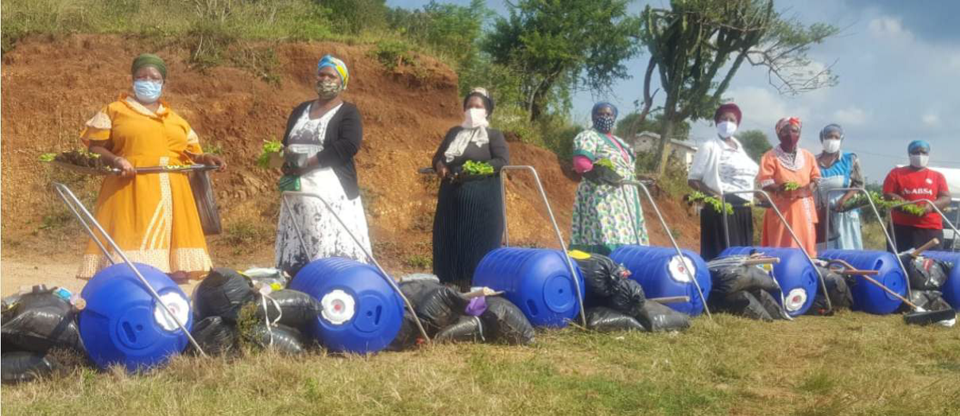WEYBURN – A development project in South Africa has been increasingly helping families move beyond subsistence with “survival gardens” over the past year, the Weyburn Rotary Club heard in an update on Thursday.
Two speakers located thousands of miles apart spoke via Zoom with the club, providing details on how the project is helping families in the southeast region of South Africa, particularly near Durban.
Bob Campbell from his home in Durban, while Gary Dawyduk spoke from Winnipeg, each sharing how their respective clubs have been involved in the “1,000 Survival Gardens” project and distributing “hippo rollers”, which help in transporting water in remote rural areas.
A hippo roller is a plastic container that can hold the equivalent of five 20-gallon buckets that girls and women normally carry on their heads over long distances. Outfitted with a handle, it can be rolled over the ground instead, a much easier process than carrying the buckets.
The Weyburn Rotary Club had a hippo roller on display at the Art in the Park table last summer, and took in a number of donations towards buying them for families in Africa.
The Rotary Clubs in Durban and in southeast South Africa, in partnership with other NGOs in the area, have distributed some 800 hippo rollers in the East Cape area of South Africa.
With the ultimate goal of establishing and supporting 1,000 gardens in rural areas with complete kits to assist families in providing them food security, 499 kits have been distributed so far, said Campbell.
In addition, 50 further kits are being assembled right now, and 45 more are in the process of being put together, he said, with around 200 further requested for kits received and more are coming in all the time.
Each kit has a hippo roller, gardening tools, seeds and seedlings, compost, fertilizer, a guide for planting and caring for a garden, as well as hand sanitizer and masks. This kit costs the equivalent of $250 Cdn.
In the distribution of these kits, Campbell noted they and their partner organizations are asking the beneficiaries to contribute the equivalent of 150 Rand, or $13 Cdn, as it helps develop a sense of ownership and responsibility in the recipients towards planting and maintaining the gardens.
The program was initially launched in 2020 during the height of the COVID pandemic, sparked by warnings by the United Nations that the pandemic would lead to multiple famine situations in Africa with the inability of countries to respond with aid. It was felt that food aid packages were unsustainable in this situation, so the concept of the Survival Gardens was developed to help families become self-sustaining for water and food.
Some of the partners include the East Coast Lions, CAST (Churches Aligned for Social Transformation), the Hillcrest AIDS Centre, Deep Rural and Swim for Rivers, along with Rotary Clubs in the region and from Canada, including from Winnipeg and Gibsons, B.C.
The Weyburn Rotary Club has agreed to donate $250 to buy a complete garden kit as a part of this project. In addition, the Rotary Club in Winnipeg has pledged to match any donations made by clubs here in Canada.




